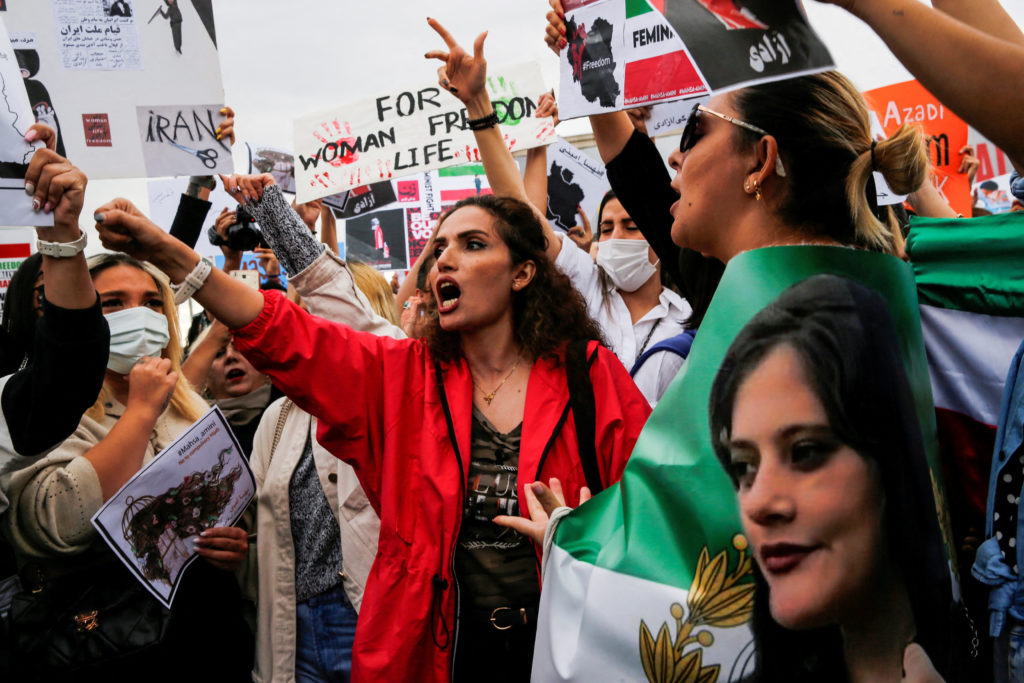New Iranian Hijab Bill Could be Beginning of “Gender Apartheid”
On Sept. 20, the parliament of Iran approved the ‘Bill to Support the Family by Promoting the Culture of Chastity and Hijab,’ laced with inherently discriminatory law.
In Iran, wearing a hijab has been mandatory since 1983 for women and girls over the age of nine. While hijabs are seen as a symbol of religious piety and modesty in Islamic culture and some women feel empowered wearing them, this new bill treats women as second class citizens with its repressive restrictions and demeaning language. The bill also calls for a government campaign to promote conservative islamic family values. Many are worried of the possibility of gender persecution under this increased system of punishment targeting women and girls.
In September of 2022, 22-year-old Jina Mahsa Amini was killed at the hands of the morality police after being detained for allegedly not adhering to the dress code. Authorities attempted to cover the case up with claims of prior health conditions. Protests and demonstrations followed, criticizing the restrictive veiling laws. United Nations experts say the bill is a warning to all Iranians that the government will not be retreating from its stance on hijabs in spite of the demonstrations last year. Authorities began installing cameras in public places to catch unveiled women.
This warning was proven true just over a week ago, as on Oct. 1, 16-year old Armita Geravand fell into a coma after reportedly being assaulted by the hijab enforcement officers in a subway station in Tehran, suffering visible head trauma. The full story is unclear, as an increased number of guards have been posted around the hospital. Authorities have denied relatives and friends access to Geravand and restricted reporters from covering the story or publishing footage since the incident.
The new bill would vastly increase punishments for women and girls who do not obey the dress code. Those caught without a head covering face up to 10 years in jail, a fine up to 360 million Iranian rials, or even a flogging according to the United Nations Office of the High Commissioner for Human Rights. They also risk travel and online access restrictions, whereas the same offense under previous legislation carried a jail term of only two months at most or a fine of up to 500,000 Iranian rials.
Not only does the bill increase punishments, it implements more gender segregation in educational institutions/universities, tourist locations, administrative centers and hospital treatment areas. The UN has called the Iranian government “gender apartheid”.
The bill extends to celebrities and even mannequins and toys, banning “indecency” from anything resembling a woman. Managers of organizations who fail to uphold the law could also face punishments, including jail time and fines.
However, the bill’s language is ambiguous, failing to define what constitutes being
“semi-naked” or indecent in public, despite that crime being punishable by fourth-degree prison sentences.
The morality police of Iran have returned to detaining women caught without the headscarf in public following mass protests of the compulsory dress code last year. In Septmeber, the government created a public mobile app for ordinary people and government informants to report women that don’t wear the full hijab, resulting in more surveillance and consequences.
The bill must still be approved by the Guardian Council before it goes into law, a legislative body comprised of 12 men and led by 97-year old Cleric Ahmad Jannati. By employing Article 85 of Iran’s constitution, if approved by the Council of Guardians, the bill could receive a three- to five-year trial period.




